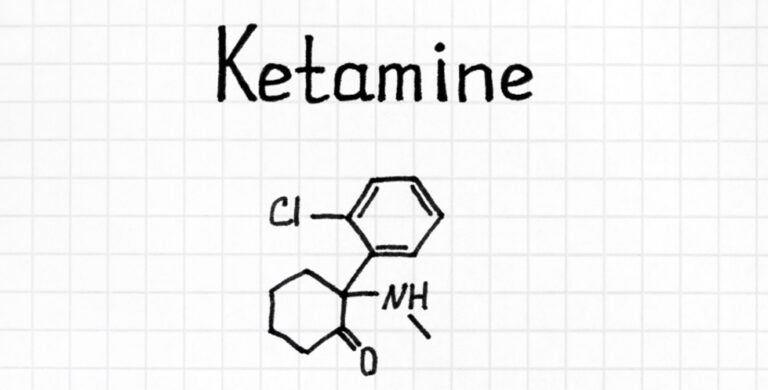
Exploring the Power of Therapy for Anger Management
Anger is a natural and often healthy emotion that everyone experiences, but when your temper starts to take over your life, it could signal a deeper issue. Psychotherapy, whether through in-person sessions or online therapy, can offer a constructive and practical way to address unhealthy anger.
When anger spirals out of control, it can do more than just harm your relationships; it can also take a toll on your health. Studies show that chronic anger can lead to frequent headaches, stomachaches, and even more serious conditions like coronary heart disease, diabetes, and high blood pressure.
The good news is that you don’t have to feel trapped by your anger. Anger management therapy is a proven method to help you break free from harmful behaviors linked to anger. Discover the most effective types of therapy, how anger management therapy works, its benefits, and whether seeking help might be the right step for you.
What is Anger Management Therapy?
Anger management therapy is a psychotherapeutic approach designed to control and prevent various forms of anger. There are numerous strategies available to help individuals address anger management challenges. This type of therapy can assist you in identifying the underlying causes of your anger and the stressors that trigger unhealthy anger responses. Through therapy, you can develop coping tools that enable you to respond positively and constructively in stressful situations that might otherwise provoke uncontrolled anger. By learning to manage, reduce, and release anger effectively, you’ll gain greater control over your emotions, situations, and relationships with others.
How does anger management therapy work?
Anger management treatment involves delving into the root causes of your anger and providing tools to replace destructive habits with more constructive responses.
Identifying your triggers is essential. When you understand what affects you, you can better anticipate and redirect your emotions before they take over.
In anger therapy, you can:
- Improve impulse control
- Develop a more positive self-image
- Learn to manage frustrations before they escalate into anger
- Practice breathing techniques and other relaxation strategies to keep your anger in check
Types of Therapy for Anger Management
Several types of therapy can assist you in developing healthy ways to manage your emotions.
Cognitive Behavioral Therapy (CBT)
Cognitive Behavioral Therapy (CBT) is one of the most widely used and effective treatments for anger management. Various CBT techniques have proven to be highly effective in helping individuals manage their anger.
In CBT sessions with a licensed therapist, you may engage in:
- Mindfulness training
- Restructuring dysfunctional thoughts
- Training in healthy distress tolerance
- Emotion regulation and empathy development
- Building skills that transform anger into assertiveness
Family Therapy
Family therapy is particularly useful when anger is directed toward family members. This collaborative approach allows everyone involved to work together to improve understanding and relationships.
Family therapy can:
- Help improve communication
- Facilitate the resolution of issues
- Encourage letting go of resentments
- Strengthen bonds and connections with family members
- Focus on rebuilding estranged relationships
Dialectical Behavioral Therapy (DBT)
Dialectical Behavioral Therapy, a form of CBT, is especially helpful if you frequently lose control over your emotions. DBT is particularly effective for managing intense anger.
DBT can assist with:
- Establishing emotional regulation
- Increasing distress tolerance
- Utilizing mindfulness meditation to control emotions
- Enhancing communication skills
Psychodynamic Therapy
Psychodynamic therapy delves into the underlying causes of your emotions. For anger management, the focus is on understanding the root of your anger and addressing unhealthy responses. This therapy explores how you can change your reactions when anger arises.
Psychodynamic therapy will:
- Encourage self-reflection
- Uncover unconscious reasons behind your anger
- Work to reduce or eliminate feelings of anger
- Focus on improving interpersonal relationships
What is the best therapy for anger management?
No single form of therapy works perfectly for everyone, as therapy cannot be a one-size-fits-all solution. Various factors influence the effectiveness of different therapies, meaning what works exceptionally well for one person might not work at all for another.
However, much of the research on anger management therapy centers on CBT. By focusing on how your thoughts influence your actions, CBT can be an effective method for learning healthier responses to anger.
A meta-analysis of 50 studies on anger management therapy found that CBT is highly successful in treating anger issues.
Benefits of Anger Management Therapy
Anger management therapy can teach you how to stay calm in tense situations, enabling you to react in a constructive and positive manner—a powerful skill to have. The techniques you learn in therapy also help prevent the suppression of anger, which can lead to health issues like hypertension, depression, and anxiety.
“There are tremendous benefits to anger management therapy, including better job retention, less stressful relationships, healthier parenting, and more stability in decision-making. The tools and insights gained in managing your anger are invaluable,” says Talkspace therapist Dr. Karmen Smith, LCSW DD.
Additional benefits include improved:
- Judgment: Anger often clouds your ability to handle situations in a balanced way, leading to knee-jerk reactions rather than thoughtful responses. Anger management therapy can help you channel your anger so you remain in control instead of erupting. By the end of treatment, you can learn to assess situations more objectively.
- Communication: Miscommunications often fuel anger, leading to misunderstandings. Learning better communication skills through therapy can make conversations more straightforward and controlled.
- Understanding of Empathy: A significant part of therapy involves developing empathy. Being empathetic helps you understand others more deeply, reducing the likelihood of conflicts.
- Relationships: Anger issues can strain relationships, whether by creating distance or causing others to push you away due to the harm your anger has caused. Often, those closest to us bear the brunt of our uncontrolled anger. Learning to manage your anger can help you reconnect with loved ones and focus on repairing those relationships.
Can Therapy Solve Anger Issues?
Many individuals experience significant success in resolving their anger issues through therapy with a mental health professional. Research has shown that therapy can provide long-term benefits in managing anger. One study even found that participants were able to better manage their anger a year after completing treatment.
Other studies have highlighted that anger management therapy can be particularly helpful for those who experience anger related to health diagnoses.
How to Know if You Need Anger Management Therapy
Therapy can be beneficial for most people at some point in their lives. If your anger is disrupting your professional or personal relationships or hindering your ability to lead a happy, carefree life, it may be time to seek help.
Signs that you might need professional anger management therapy include:
- Blaming others for your situations, whether or not they are at fault
- Displaying passive-aggressive behavior in various situations
- Reacting with more aggression than is appropriate
- Feeling angry frequently and struggling to let go of it
- Holding onto anger longer than is reasonable
- Having difficulty expressing your emotions in a positive manner
- Exhibiting physical responses to anger, such as raising your voice, pacing, or being snarky or sarcastic
- Isolating yourself or experiencing urges to self-harm
- Using substances to cope with your anger
Resolve Anger Issues
Online therapy platforms can assist you in managing your anger in healthier ways. Experienced and skilled therapists can help you identify triggers and teach you how to react more effectively and positively.
You don’t have to let anger control your life. Help is available—all you need to do is reach out. Discover how online therapy can make anger management therapy simple, accessible, and affordable.


















